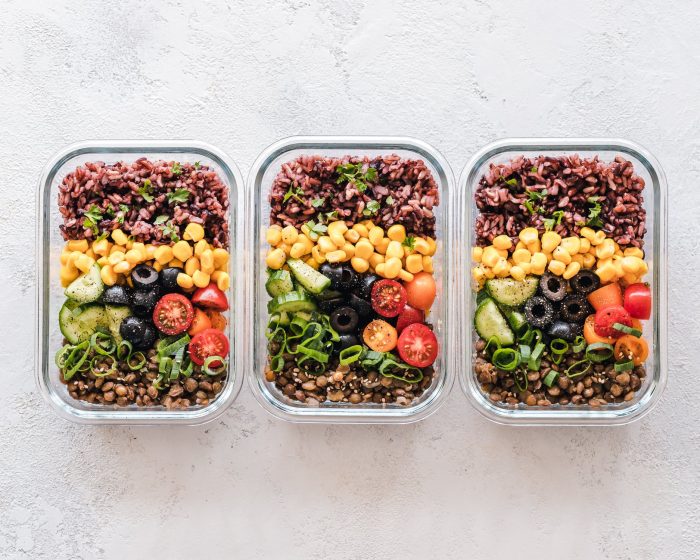I’m tempted to publish this piece without a by-line — I know, I know, it’s not possible. Or with one that doesn’t reflect my real name. Why?
Anyone who knew me would immediately brand me a hypocrite just by the title. To put it mildly, I am not a fan of beans. Besides not exactly being thrilled by the taste, my dislike traces back to primary school shenanigans – and not just peculiar to me.
Here’s how it panned out: If you brought beans or eggs for lunch, the slightest stench afterward is attributed to you. Kids can be mean, and eventually, you learn it’s easier to never eat beans at school than have to mount an unsuccessful defense about how it wasn’t you who farted. At home, I did not mind eating Ewa Agoyin, a special Beans recipe peculiar to the Agoyin people of the nearby Benin Republic. But nine out of ten times I get asked if I’ll eat beans, I say an emphatic No.
However, that doesn’t mean I’m unaware of how healthy it is. I’ve always had the habit of googling the things I eat. I never did it for beans, until I married a man who proudly claims it as his favorite food.
There are foods, and there are FOODS. But beans are in a class of their own. Here are nine solid reasons why you should actually eat beans. If you’ve always hated beans, these reasons are more than enough to make you hop on the train.
- Beans Aids Digestion
As a result of the fact that beans contain both soluble and insoluble fiber, they have a dual role in maintaining the health of your digestive system. The first serves to slow down digestion, which gives you a sense of being full, while the second helps to prevent constipation from occurring. Additionally, contrary to popular belief, beans do not cause an increase in gas. Just keep in mind that you need to consume a lot of water in order to facilitate the movement of all that fiber through your digestive tract.
- Reduces the Risk of Having Cancer
It has been recommended by researchers that individuals consume three cups of beans on a weekly basis to improve their health and lower their chance of developing chronic illnesses such as cancer. This is because of the high levels of fiber and antioxidants that beans contain.
- Beans Can Help Lower Cholesterol Levels
When you have high levels of LDL cholesterol, often known as bad cholesterol, it can attach itself to the walls of your blood vessels, which can lead to inflammation and plaque accumulation. What you eat is the first step in maintaining a healthy cardiovascular system, and beans are an excellent low-fat meal to have on your side. Beans include soluble fiber, which binds to cholesterol in the gastrointestinal system, preventing it from being absorbed into the bloodstream.
- Beans Are Good for Your Heart
Consuming a diet that is high in beans is beneficial for the health of your heart. Every 1 percent drop in total blood cholesterol results in a 2 percent reduction in the risk of having a heart attack. You can greatly reduce the chances of developing these diseases by increasing your beans intake. Additionally, beans are an excellent source of the minerals potassium and magnesium, both of which are essential for heart health. Potassium has the ability to eliminate excess salt and water from the body, which in turn can result in a reduction in blood pressure. As reported by the National Institutes of Health, magnesium is beneficial for nerve function as well as for blood pressure management.
- Beans Can Help Keep Your Weight in Check
Beans are high in protein, another nutrient that helps to control cravings, in conjunction with belly-filling fiber. Beans’ protein and fiber slow stomach emptying, making you feel fuller for longer and delaying the return of hunger. While many individuals resort to meat or fish for protein, many are unaware that beans also have a high content. For example, a half-cup of cooked black beans has roughly 8 grams of protein. Even better, because beans are low in fat, they make it easier to lose weight.
- Beans Are Gluten-Free
If you want to reduce the amount of gluten in your diet; eating more beans, lentils, and peas is a fantastic method to do it. Baking using bean and pea flours, such as chickpea flour, is possible; nonetheless, it is important to read labels carefully. If you’re looking for gluten-free options, keep an eye out for products that include additional wheat flour or wheat starch.
- Beans Have a Long Shelf Life
How many things can you think of that you can store in your kitchen cabinet for a long length of time without them going bad? Dried beans can keep their nutritious content for up to three years after they have been cooked and dried.
- Beans Will Move You
Beans can help reduce constipation by promoting regular bowel movements. If you want to get the most out of your meal, drink plenty of fluids, such as still or sparkling water, along with high-fiber foods. Beans are an excellent source of fiber for individuals who are sensitive to gluten, a natural protein present in wheat, rye, barley, and occasionally oats. When in doubt, check the label or contact the manufacturer to see if it’s safe to eat.
- Beans Can Help Regulate Blood Sugar
Beans’ carbohydrates are absorbed at a slower pace over a longer period of time due to fiber and protein. Beans can help keep diabetes at bay since they help keep one’s blood sugar stable. People with type 2 diabetes who drank one cup of beans daily for three weeks were able to sustain lower blood sugar and blood pressure than when they began the diet, according to research published in the Archives of Internal Medicine.






Read 0 comments and reply